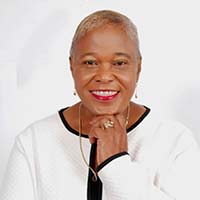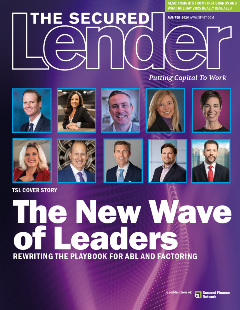
Patricia Goldson
VP, National Audit Manager , Asset Based Lending Consultants (ABLC)
Patricia Goldson is a vice president and the national audit manager for Asset Based Lending Consultants (ABLC) located in Hollywood, FL. In this role, she leads a team of dedicated, professional, multilingual field examiners engaged in meeting the auditing needs of lenders nationally and internationally as well as providing monitoring services, fixed assets verification, business valuations and lender-to-lender reviews.
Patricia has over 17 years of experience in the ABL industry. Prior to working at ABLC, she worked as the chief information officer of an overseas mortgage company. She is conscientious, highly motivated, has a proven success in fast-paced deadline driven environments and thrives well in team-oriented settings. She holds a bachelor’s degree in Management Studies with a major in accounting and a master’s degree in Information Systems.
Patricia is actively involved in community social programs and is married
to Aston Goldson.
What role has mentoring played in your career?
Mentoring has played an important part in my career both as a mentor and a mentee. In 2002, I made a career switch from information technology to asset-based lending examinations and had the great fortune to be mentored by Don Clarke, who happens to be an industry leader. His mentorship helped me to successfully make the transition and, amongst other things, instilled in me a culture of wanting to learn something new every day. As I mentor, it gives me a sense of fulfilment when I see my mentees achieve their goals and in turn begin to mentor others.
What effect, if any, has working remotely had on your career and/or your industry? What have been the challenges and how have you worked to overcome them?
Working remotely has impacted field examinations as it relates to the time taken to conduct these exams. Exams are taking longer as borrowers are challenged to provide the information in a timely manner with staff working remotely as well as some borrowers not giving priority to the field exam. This has resulted in scheduling issues. There is also the risk involved of not being able to physically verify the inventory included in the collateral. Test counts are compromised as they have either been postponed or are being done remotely, which has its challenges. Hopefully, as more persons are vaccinated, examiners will be able to safely resume site visits.
What do you think work will look like in the post-pandemic world?
In my opinion, post-pandemic work will continue to evolve. The pandemic has proven that more people can work from home and be productive than was previously thought. In fact, it is believed that productivity has increased as less time is spent commuting and employees are able to focus on the work at hand.
Many jobs will become fully or partially transformed into digital jobs. This will require a revisit of traditional employment policies to address the widening digital gaps in the workplace as many employees still have not gained the necessary skills required in a digital economy. Research has revealed that people with low skills have been more impacted by the pandemic, and that women have been more impacted than men. Remote jobs will therefore continue so that parents and families, and women in particular, will be able to continue to work from home.
It must be noted that many employees miss the social interaction with their peers and would like to have the flexibility of a hybrid workweek, which allows them to be in the office for two or three days. Field examiners at some point need to be on site so they can literally “kick the tires and open the boxes.” However, I think the time spent in the field will be shortened and restricted to inventory counts, clarifying grey areas with borrowers and examining sensitive data where necessary. Certainly, I feel that the borrowers will be lobbying for more desk-top examinations, which reduces the out-of-pocket expenses.
Air/business travel will be impacted as companies continue to utilize various platforms for remote meetings. The physical office space will shrink, resulting in a reduction in rent and other overheads, but will negatively impact commercial real estate.
The Secured Lender

SFNet's The Year Ahead Issue


